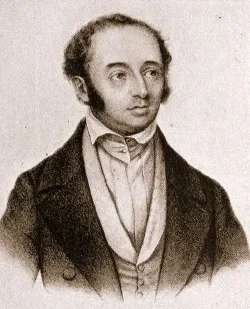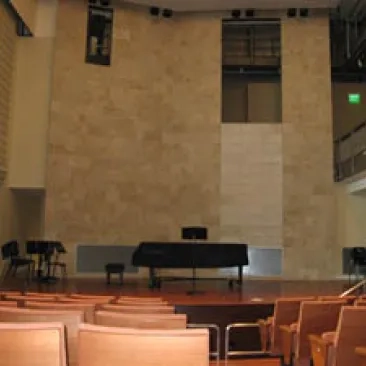Welcome to SFCMTheory —
the website for the Department of Musicianship and Music Theory at the San Francisco Conservatory of Music.
The San Francisco Conservatory of Music offers extensive training in the areas of music theory, eartraining, and related topics of study. The Department of Musicianship and Music Theory supervises and offers courses at both the undergraduate and graduate levels.
At SFCM, music theory is viewed as an indispensable and vital component of a musician's training. To that end, the department emphasizes theory and eartraining as living practical arts, rather than as abstractions covered from a purely academic point of view.
The program is nonetheless highly rigorous, including a two-year core-curriculum program in both theory and eartraining; keyboard-related courses including basic keyboard skills and keyboard harmony; courses in orchestration, counterpoint, analysis (both formal and Schenkerian), advanced harmony, and many other topics.
In the San Francisco Conservatory's long-standing tradition, class sizes are kept small and the professors are easily accessible.
This website is your guide to the Department of Musicianship and Music Theory, and contains a wealth of resources, many of which are freely available to anyone who cares to explore them. (Some may be restricted to currently enrolled students, however.)
Department Mission
The mission of the Department of Musicianship and Music Theory is to connect academic music theory to the knowledge required by working musicians, by training our students to cultivate both an intellectual and practical comprehension of the materials and structures of music.
The department’s objectives are:
• To provide today’s young musicians with a broad spectrum of intellectual and artistic disciplines within the musical sphere.
• To prepare our students for active and diverse roles in a rapidly changing musical profession.
• To encourage and foster an appreciation for the study of music as an academic discipline.
To meet these goals, the department offers a wide variety of courses. Students in the undergraduate lower division take a four-semester course in Musicianship which emphasizes performance and aural analysis skills, four semesters of Music Theory covering both harmony and formal analysis, and two semesters of basic keyboard skills (for non-keyboard majors), with remedial courses given as necessary. Specialized, more advanced courses—many of which are required for composition majors—are taken at the upper division level, or as electives. For graduate students, remedial courses in Music Theory and Musicianship are offered, as well as a range of elective courses and seminars.
Departmental Grading Guidelines
The department has adopted specific guidelines for grading in all of its courses. The grading curve is as follows:
90 - 100% = A
80 - 89% = B
70 - 79% = C
60 - 69% = D
below 60% = F
The awarding of '+' and '-' marks is at the instructor's discretion.
Solfege Juries and Departmental Exams
For students in MMT 103 First-Year Musicianship or MMT 105 Second-Year Musicianship, the following applies:
You will take two departmentally-administered exams at the end of the semester: a solfège jury and a dictation exam. As long as the average of the grades for the two exams is at the passing level (D- or above), it will count for 25% of your semester grade. If the average for the two exams is below the passing level, you will not pass the course.
The Department's Policy on Attendance, Lateness, and Assignments
The following policies have been adopted by the Department of Musicianship and Music Theory, and apply to all of the department’s courses as of Fall Semester, 2006:
1. Attendance
You are allowed absences up to one week's worth of class meetings (i.e., a class with 3 meetings per week = 3 allowed absences), without penalty. Above the allowed maximum, each subsequent absence will result in the loss of 5% from your semester grade for the course, and a Monitoring Report will be sent to the Dean’s office.
2. Lateness
Each time you are late to a class, you will lose 1% from your semester grade for the course.
3. Assignments
No late assignments will be accepted. If you are absent from a class for which an assignment is due, it is your responsibility to get your work to your professor, and on time. You are also fully responsible for all material covered in class during your absence.
The Core Curriculum Undergraduate Musicianship - Music Theory Program
Both Musicianship and Music Theory classes are designed to be taken concurrently. A four-semester Musicianship sequence (MMT 102 through MMT 105) is complemented by a four-semester Music Theory sequence (MMT 112 through MMT 115). In most cases, students are placed into the same point in the sequence in both areas (for example, into both MMT 102 and MMT 112) and study with the same teacher in both subject areas, and with predominantly the same group of students. This helps the department to ensure that an individual student's progress through these vitally important subject areas is characterized by a level of consistency that would be difficult to attain with courses that are not as organically connected. However, because the courses are in fact separate, it is possible for the department to accomodate those students who may be more advanced in one area than another.
About Musicianship at SFCM
- The sightsinging program is taught using fixed-do solfège syllables, as well as with moveable scale degree numbers.
- All students in the Musicianship program are required to learn the basic conducting patterns and use them consistently when performing sightsinging examples or rhythms.
- Musicianship classes are kept small so students receive ample individual attention; rarely are classes larger than 20 students.
- Although both Musicianship and Music Theory are four-semester sequences, the department ensures that every individual course (MMT 102 through MMT 104, MMT 112 through MMT 115) is available during any given semester.


